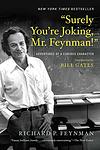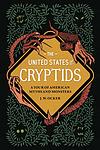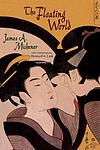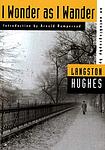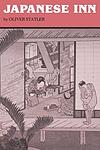The Greatest American "Japan" Books of All Time
Click to learn how this list is calculated.
This list represents a comprehensive and trusted collection of the greatest books. Developed through a specialized algorithm, it brings together 300 'best of' book lists to form a definitive guide to the world's most acclaimed books. For those interested in how these books are chosen, additional details can be found on the rankings page.
Genres
The "Japan" category for books encompasses a wide range of literature that explores the history, culture, and society of Japan. This includes works of fiction, non-fiction, and poetry that delve into the country's traditions, customs, and beliefs, as well as its modern-day politics, economy, and technology. Books in this category may also focus on specific aspects of Japanese culture, such as its cuisine, art, or entertainment, or explore the experiences of Japanese people living both within and outside of Japan. Overall, the "Japan" category offers readers a rich and diverse selection of books that provide insight into one of the world's most fascinating and complex cultures.
Countries
Date Range
Reading Statistics
Click the button below to see how many of these books you've read!
Download
If you're interested in downloading this list as a CSV file for use in a spreadsheet application, you can easily do so by clicking the button below. Please note that to ensure a manageable file size and faster download, the CSV will include details for only the first 500 books.
Download-
1. Neuromancer by William Gibson
In this groundbreaking cyberpunk novel, a washed-up computer hacker is hired by a mysterious employer to pull off the ultimate hack. As he navigates a dystopian future filled with artificial intelligence, corporate espionage, and virtual reality, he must confront his own past and the dark realities of the digital world. The narrative explores themes of technology, identity, and consciousness, pushing the boundaries of science fiction literature.
-
2. Hiroshima by John Hersey
This book provides a detailed account of the aftermath of the atomic bombing of Hiroshima during World War II, as experienced by six survivors. The narrative follows the survivors from the moment of the explosion to their lives in the following years. It explores their struggles, their resilience, and the profound physical, emotional, and social impacts of the event, offering a poignant examination of the human capacity to endure and rebuild in the face of unimaginable devastation.
-
3. The Making of the Atomic Bomb by Richard Rhodes
This comprehensive book provides an in-depth account of the development of the atomic bomb during World War II. It explores the scientific advancements that made the bomb possible, the political decisions that led to its creation, and the moral dilemmas faced by the scientists involved. The book also details the personalities of key figures in the Manhattan Project, the effects of the bomb on Hiroshima and Nagasaki, and the impact of nuclear weapons on the world.
-
4. Memoirs of a Geisha by Arthur Golden
This novel is a historical fiction that provides a rich exploration of life in Japan before World War II, through the eyes of a young girl sold into the geisha lifestyle. The protagonist is trained in the arts of entertaining wealthy and powerful men, navigating a world of jealousy, love, and social politics. Her journey is one of resilience and survival as she strives to find personal happiness in a society that views her as a commodity.
-
5. The Great Railway Bazaar by Paul Theroux
"The Great Railway Bazaar" is a travelogue in which the author embarks on a four-month journey by train from London through Europe, the Middle East, the Indian subcontinent, Southeast Asia, and Siberia, and then back to Europe. The book is a vivid and insightful account of the people, cultures, landscapes, and experiences encountered during the journey, painting a unique picture of the world as seen from the perspective of a train window. The author's sharp observations and engaging storytelling make this journey as much an inner exploration as a geographical one.
-
6. The Plot Against America by Philip Roth
This novel presents an alternate history where aviator-hero and rabid isolationist Charles Lindbergh is elected President in 1940, leading the United States towards fascism and anti-Semitism. The story is narrated through the perspective of a working-class Jewish family in Newark, New Jersey, experiencing the political shift and its terrifying consequences. The narrative explores themes of prejudice, fear, patriotism, and family bonds under the shadow of a fascist regime.
-
7. "Surely You're Joking, Mr. Feynman!": Adventures of a Curious Character by Richard P. Feynman
The book is an autobiography of a Nobel Prize-winning physicist, filled with humorous and insightful anecdotes from his life. It highlights his adventures from his early years, working on the Manhattan Project, to his teaching years at Caltech. The book showcases his unconventional thought process, his insatiable curiosity, and his passion for science, painting a vivid picture of a man who never stopped questioning and learning.
-
8. Patterns of Culture by Ruth Benedict
"Patterns of Culture" explores the concept of culture as a collective personality, analyzing the patterns of behavior and thought that define different societies. The author uses examples from diverse cultures such as the Pueblo Indians and the Dobu Islanders to illustrate her point. The book argues that each culture has its own unique pattern and personality, which is shaped by its history, environment, and social structure. The author emphasizes the importance of understanding these patterns in order to fully understand and appreciate the diversity of human cultures.
-
9. Unbroken: A World War II Story of Survival, Resilience, and Redemption by Laura Hillenbrand
This book is a gripping true story of a WWII veteran, who was an Olympic runner before the war. His plane crashes in the Pacific during a reconnaissance mission, and he survives for 47 days on a raft, only to be captured by the Japanese Navy and sent to a series of brutal prisoner of war camps. Despite the immense suffering, he remains unbroken, maintaining his dignity and hope, and eventually finds redemption after the war.
-
10. War Without Mercy by John W. Dower
This book provides a detailed analysis of the racial aspects that influenced the Pacific War during World War II. It explores the racial stereotypes, propaganda, and policies that were used by both the United States and Japan, and how these factors contributed to the extreme violence and hatred that characterized the conflict. The book also examines the impact of these racial attitudes on the post-war relations between the two countries.
-
11. World War Z by Max Brooks
The book is an apocalyptic horror novel presented as a collection of individual accounts in the aftermath of a global pandemic that leads to a catastrophic zombie outbreak. Through interviews with survivors from various countries and walks of life, the narrative unfolds the social, political, cultural, and environmental implications of the zombie crisis, known as World War Z. The personal stories explore the widespread panic, the collapse and resurgence of governments, military strategies employed to combat the undead, and the human resilience in the face of a decimated world. The novel serves as a critique of societal responses to disasters and a commentary on the human condition.
-
12. War and Remembrance by Herman Wouk
The novel is a historical saga that continues the story of an American family during World War II. It follows the naval career of one of the family members, his experiences in the Pacific, and his struggles with his marriage. Simultaneously, the narrative also focuses on the harrowing experiences of his Jewish relatives in Europe, who are caught in the horrors of the Holocaust. The novel provides a detailed account of the war on multiple fronts, both personal and political, and explores themes of love, loss, and the human capacity for survival.
-
13. The Floating World by Cynthia Kadohata
"The Floating World" is a poignant exploration of the complexities of family dynamics and cultural identity, set against the backdrop of post-World War II America. The narrative follows a Japanese-American family as they travel through the United States in search of economic stability, living out of their car and taking on menial jobs. Through the eyes of a young girl, the story delves into themes of displacement, resilience, and the search for a sense of belonging in a country that is both home and alien. The family's journey is a testament to their enduring spirit and the challenges faced by immigrants in a landscape marked by prejudice and change.
-
14. The Road Through Miyama by Leila Philip
The book is a memoir that recounts the author's experience living in the rural Japanese village of Miyama, where she apprenticed with a traditional potter. Immersing herself in the rhythms of rural life and the demanding discipline of pottery, she navigates cultural barriers and finds a deep connection to the landscape and its people. Through her journey, the author explores themes of tradition, craftsmanship, and the intricate relationship between human endeavor and the natural world, all while painting a vivid portrait of a community holding onto its heritage amidst modernity.
-
15. Talking To High Monks In The Snow by Lydia Minatoya
This memoir explores the journey of a Japanese-American woman as she grapples with her cultural identity and heritage. Through a series of poignant and reflective narratives, she recounts her experiences growing up in a predominantly white American neighborhood, her travels to Japan to connect with her ancestral roots, and her conversations with Buddhist monks. These encounters and introspections lead her to a deeper understanding of her place in the world, as she navigates the complexities of belonging, tradition, and self-discovery. The book is a contemplative exploration of the intersections between East and West, and the personal quest for meaning and connection amidst cultural dissonance.
-
16. Japanese Homes And Their Surroundings by Edwin Morse
"Japanese Homes and Their Surroundings" explores the architecture, layout, and design of traditional Japanese homes, providing a detailed examination of the cultural and practical aspects that influence residential structures in Japan. The book delves into various elements such as construction materials, room functions, and the integration of nature with living spaces, reflecting the aesthetic and philosophical ethos of Japanese life. Through illustrations and descriptions, it offers insights into how these architectural forms foster a harmonious relationship between human habitation and the natural environment, highlighting the unique blend of simplicity, utility, and beauty in Japanese domestic architecture.
-
17. The True Believer by Eric Hoffer
"The True Believer" is a philosophical analysis of the nature of mass movements and the people who constitute them. The book argues that regardless of the specific cause, whether it be religious, political, or social, all mass movements are interchangeable and their followers are essentially the same. The author suggests that the driving force behind these movements is not the ideology itself, but rather the personal dissatisfaction and frustration of the individuals involved. The book also explores the lifecycle of mass movements, from their creation to their eventual dissolution.
-
18. To A Distant Island by James McConkey
In "To A Distant Island," the narrative follows a protagonist who embarks on a journey retracing the steps of a 19th-century Russian writer's self-imposed exile to Sakhalin Island, situated off the eastern coast of Russia. The protagonist, seeking to understand the writer's motivations and experiences, delves into a reflective exploration that intertwines the historical account with personal introspection. As he travels through Japan and Russia towards the distant and desolate island, the book becomes a meditation on freedom, punishment, and the human condition, all while providing a vivid portrayal of the lands and peoples encountered along the way.
-
19. A Tale For The Time Being by Ruth Ozeki
In this introspective novel, a diary washes ashore on a remote Canadian island, bridging two disparate worlds. The journal, written by Nao, a troubled Japanese teenager, chronicles her life, her contemplation of suicide, and her relationship with her great-grandmother, a Zen Buddhist nun. The diary is discovered by a novelist, who becomes engrossed by Nao's story and is compelled to unravel the mysteries of Nao's fate and her own connection to the young girl. As the novelist reads, the boundaries between writer and reader, past and present, fiction and reality blur, creating a meditation on time, loss, and the intricate threads that connect human lives across the globe.
-
20. I Wonder As I Wander by Langston Hughes
In this autobiographical work, the author takes readers on a journey through his varied experiences as a young African American man during the early 20th century. Spanning continents and cultures, he recounts his travels from the United States to the Soviet Union, Asia, and Europe, sharing his observations on race, politics, and the human condition. His narrative weaves together personal anecdotes with broader social commentary, offering insights into the life of a creative mind seeking understanding and connection in a complex world. Through his wanderings, the author explores not only the diverse landscapes and societies he encounters but also delves into the depths of his own identity and the universal quest for artistic expression and freedom.
-
21. Collapse by Jared Diamond
"Collapse" is an exploration of why certain societies throughout history have thrived while others have deteriorated and collapsed. The book delves into environmental problems, climate change, rapid population growth, and unwise political decisions as factors that contribute to the downfall of a civilization. The author uses examples from history such as the Mayans, the Vikings in Greenland, and modern examples like Rwanda and Haiti, to illustrate his points. It serves as both a historical analysis and a warning for modern societies to learn from the past in order to avoid a similar fate.
-
22. Pattern Recognition by William Gibson
The novel follows Cayce Pollard, a marketing consultant with an intuitive sensitivity to corporate symbols, as she embarks on a global quest to find the creator of mysterious video clips that have garnered a cult following on the internet. Her journey takes her from London to Tokyo and then to Russia, navigating the intersecting worlds of advertising, technology, and espionage. As she delves deeper into the origin of the footage, she encounters various characters with their own vested interests, and her ability to discern patterns becomes crucial in solving the puzzle. The narrative explores themes of globalization, identity, and the impact of technology on society.
-
23. Claws Of The Cat by Susan Spann
Set in 16th-century Japan, this historical mystery follows a master ninja, Hiro, and a Portuguese Jesuit priest, Father Mateo, as they work together to solve the murder of a samurai. When a geisha is accused of the crime, the duo has only three days to find the true killer before she is forced to commit seppuku, a ritual suicide. Their investigation takes them through the dangerous back alleys of Kyoto, delving into the secretive worlds of the samurai, the geisha, and the ninja themselves, revealing a web of intrigue and betrayal that threatens to tear the very fabric of society apart.
-
24. Japanese Inn by Statler, Oliver.
This book provides a captivating exploration of Japanese culture and history through the lens of a traditional inn, or ryokan, that has been operated by the same family for over a thousand years. Through detailed descriptions and engaging storytelling, the narrative delves into the inn's storied past, the generations of the family who have maintained it, and the myriad guests who have passed through its doors, from samurai to modern tourists. The work not only offers a unique lens into the evolution of Japanese hospitality and social customs but also reflects on the country's broader historical shifts and continuities. It is a richly woven tapestry that combines personal stories, historical events, and cultural insights, providing readers with a deep and nuanced understanding of Japan.
-
25. The Teahouse Fire by Ellis Avery
Set in the late 19th and early 20th century Japan, the novel follows the life of a young American girl who, after a tragic twist of fate, finds herself orphaned in Kyoto. She is taken in by the family of a tea master, where she becomes deeply immersed in the culture and traditions of the Japanese tea ceremony. As she grows and navigates her complex identity and the societal changes of a rapidly modernizing Japan, her unique perspective as an outsider within a traditional world offers a poignant exploration of belonging, love, and the intersection of cultures.
Reading Statistics
Click the button below to see how many of these books you've read!
Download
If you're interested in downloading this list as a CSV file for use in a spreadsheet application, you can easily do so by clicking the button below. Please note that to ensure a manageable file size and faster download, the CSV will include details for only the first 500 books.
Download





